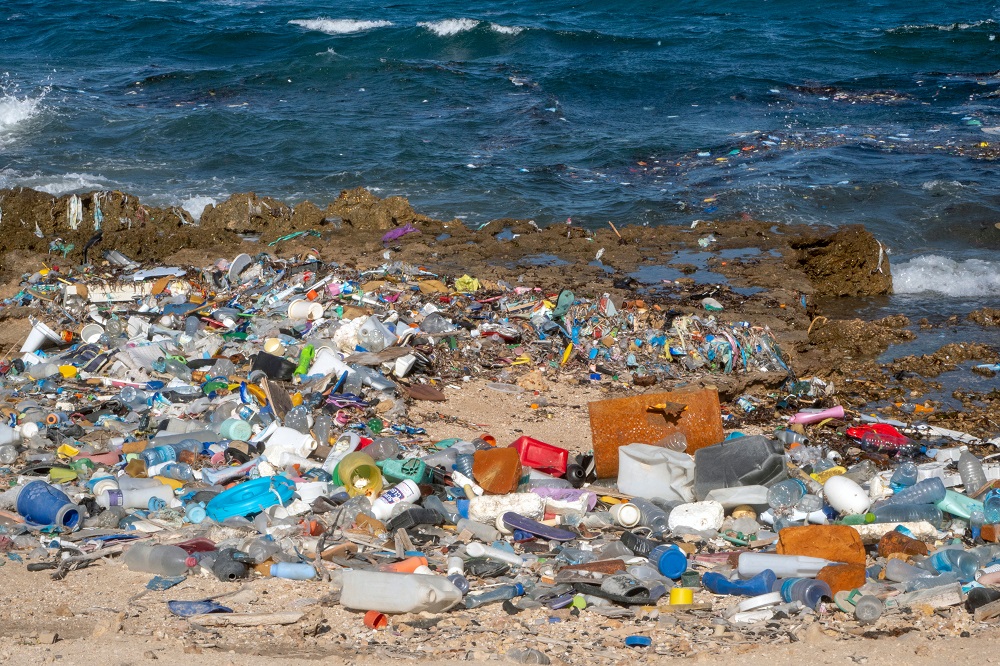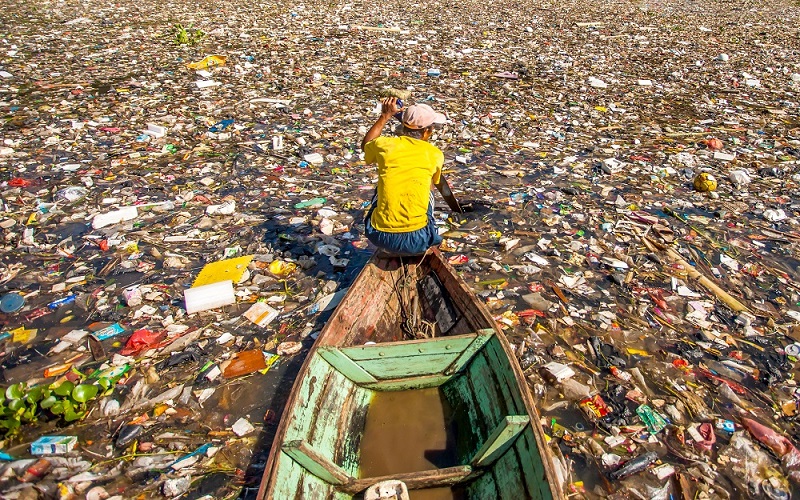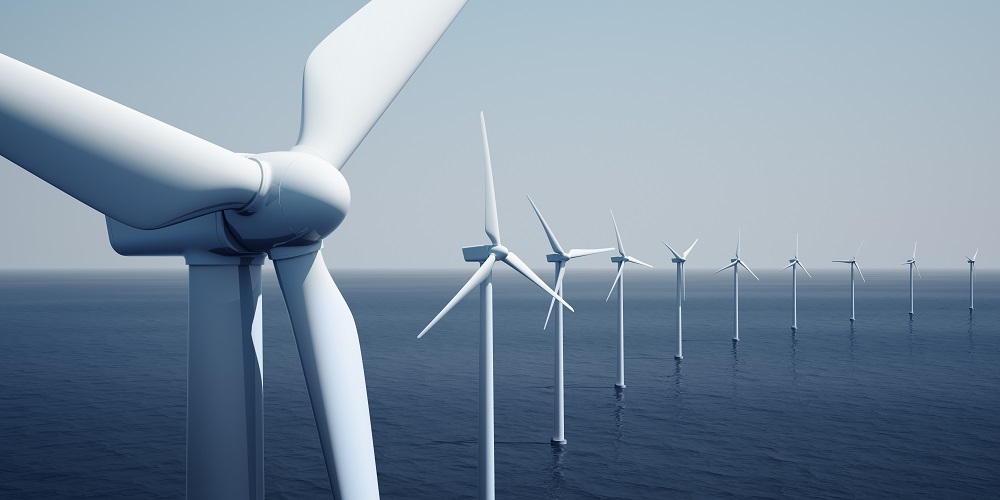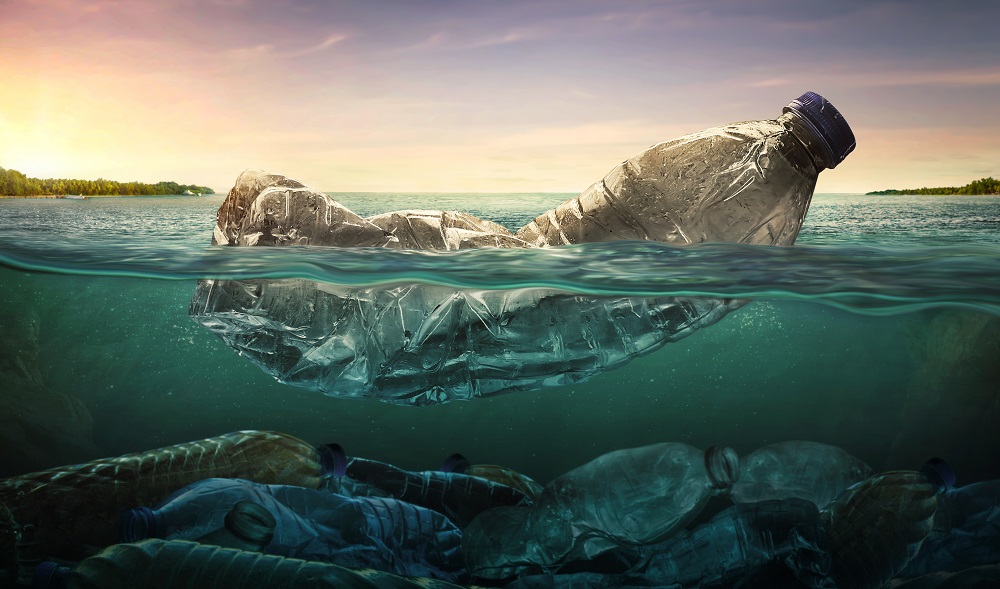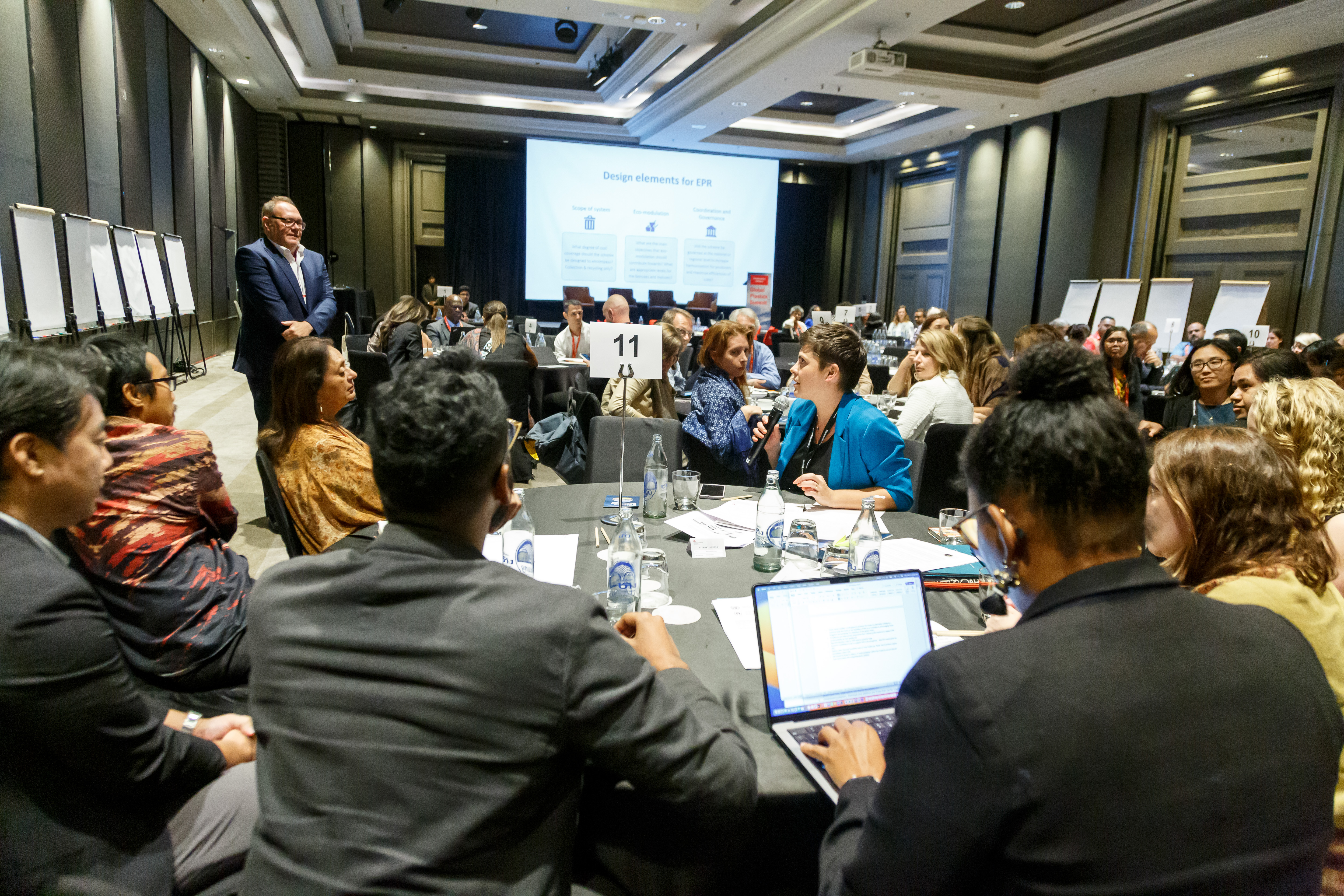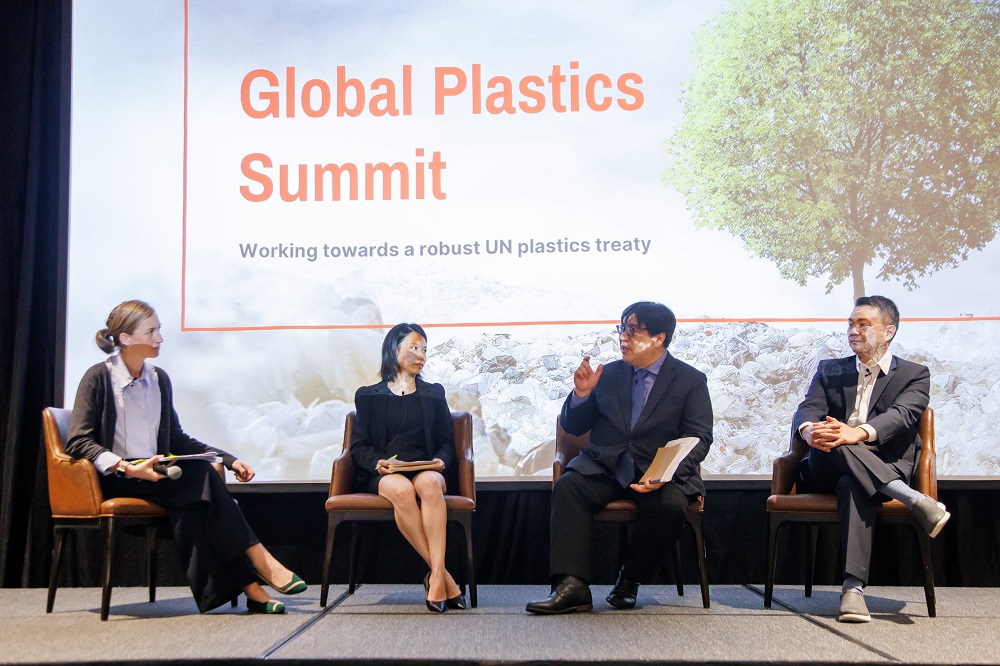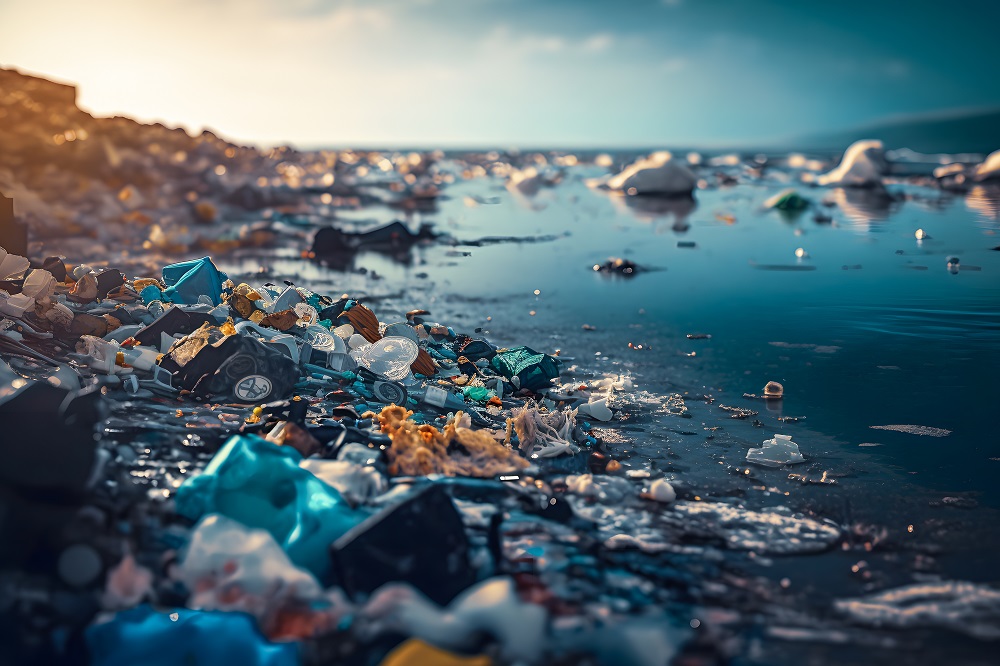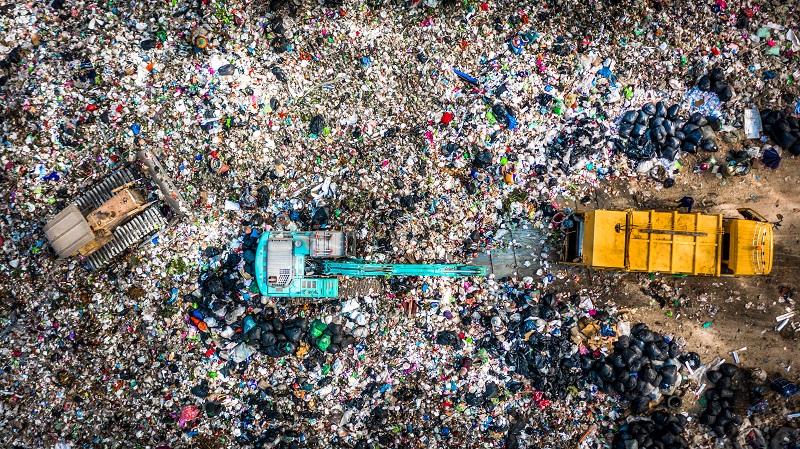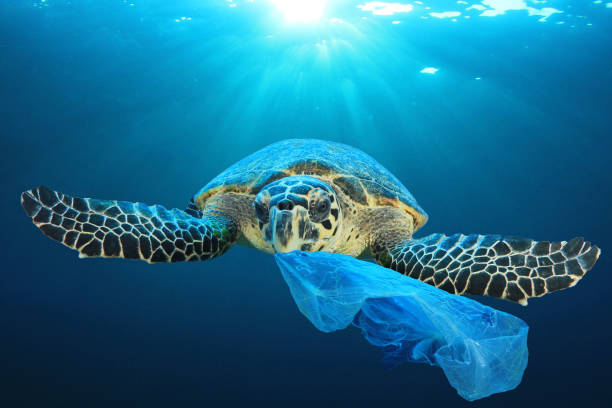CONTENT FROM

At the eighth annual World Ocean Summit, Yohei Sasakawa, chair of The Nippon Foundation, and Lord Deighton, chair of Economist Impact, signed a memorandum of understanding for Back to Blue, a three-year collaboration between the two organisations to contribute fresh analysis, dialogue and potential solutions around ocean pollution.
As part of Back to Blue, The Economist Intelligence Unit (EIU), in cooperation with the World Ocean Initiative and in association with The Nippon Foundation, conducted two surveys in December 2020/January 2021 to uncover consumers’ and executives’ understanding of issues facing the ocean. The consumer survey encompassed more than 3,000 people around the world, with one half from generation Z (born 1997 onwards) and millennials (1981-1996) and the other half from generation X (1965-80) and baby boomers (1946-64). The business survey covered more than 1,000 global executives from a variety of sectors, including finance, food (including fishing), beverages, travel (including shipping) and tourism, and energy. The results are summarised below.
Section 1: Ocean health priorities
Most consumers are highly concerned about ocean-related issues.
-
83% of the general public are concerned about issues affecting the ocean.
-
Just over a quarter (26%) are very concerned.
Seeing is believing: Pollution is regarded as the top priority for restoring ocean health.
-
Plastic pollution is seen as the top priority for restoring ocean health by both the business/public sector (cited by 57% of respondents) and the general public (60%).
-
This is followed by chemical pollution (37% of businesses; 39% of consumers).
-
But businesses and consumers also recognise the broad impact of climate change on ocean issues (34% of businesses; 31% of consumers).
However, there are knowledge gaps on both plastic and chemical pollution.
-
Regarding plastic pollution, 30% of businesses and 37% of the general public admit a lack of knowledge on opportunities for plastic recycling in their area.
-
Regarding chemical pollution, 46% of businesses and 59% of the general public admit having little or no knowledge of the causes of algal blooms.
Section 2: The role of businesses in restoring ocean health and building a sustainable ocean economy
Businesses believe their role is to marry profit with purpose in addressing ocean challenges.
-
40% say that businesses should focus on sustainable opportunities in areas such as ocean energy, aquaculture and deep-sea mining.
-
An equal share believe they must also reduce harmful exploitative activities and maximise activities that restore ocean health (39%).
There are huge business opportunities in a sustainable ocean economy.
-
Business and the public sector believe waste management will offer the biggest opportunities for a sustainable blue economy, followed by marine engineering and technology.
But what’s preventing business from doing more?
-
Lack of regulation mandating investments in restoring ocean health or similar sustainability initiatives, insufficient consumer pressure and unclear return on investment are the top reasons.
Can governments get businesses to do more?
-
Top factors influencing business decision-making processes are regulatory requirements, followed by corporate social responsibility.
-
Business is clearly seeking collaboration with government on ocean sustainability, with companies saying that their most common collaboration is with government entities in the country where they are based, while most common planned collaboration is with government entities in other countries.
Section 3: Engaging the public/consumers
More than 7 in 10 consumers believe that citizens have a significant role to play in supporting ocean science.
How is the general public contributing to ensuring ocean sustainability?
-
Recycling plastic waste is by far the most-picked answer by the general public, corresponding with the earlier finding about strong awareness of plastic pollution issues.
What’s preventing the general public from doing more?
-
Lack of knowledge about ocean issues is by far the biggest barrier, well ahead of lack of motivation and lack of opportunities.
From the World Ocean Initiative:
The original version of this article can be found on the World Ocean Initiative website. Economist Impact cannot accept any responsibility or liability for reliance by any person on this article or any of the information, opinions or conclusions set out in the article.
Back to Blue is an initiative of Economist Impact and The Nippon Foundation
Back to Blue explores evidence-based approaches and solutions to the pressing issues faced by the ocean, to restoring ocean health and promoting sustainability. Sign up to our monthly Back to Blue newsletter to keep updated with the latest news, research and events from Back to Blue and Economist Impact.
The Economist Group is a global organisation and operates a strict privacy policy around the world.
Please see our privacy policy here.
THANK YOU
Thank you for your interest in Back to Blue, please feel free to explore our content.
CONTACT THE BACK TO BLUE TEAM
If you would like to co-design the Back to Blue roadmap or have feedback on content, events, editorial or media-related feedback, please fill out the form below. Thank you.
The Economist Group is a global organisation and operates a strict privacy policy around the world.
Please see our privacy policy here.




 World Ocean Summit & Expo
2025
World Ocean Summit & Expo
2025 UNOC
UNOC Sewage and wastewater pollution 101
Sewage and wastewater pollution 101 Slowing
the chemical tide: safeguarding human and ocean health amid
chemical pollution
Slowing
the chemical tide: safeguarding human and ocean health amid
chemical pollution Hazardous chemicals in plastics - the discussions at INC
Hazardous chemicals in plastics - the discussions at INC








